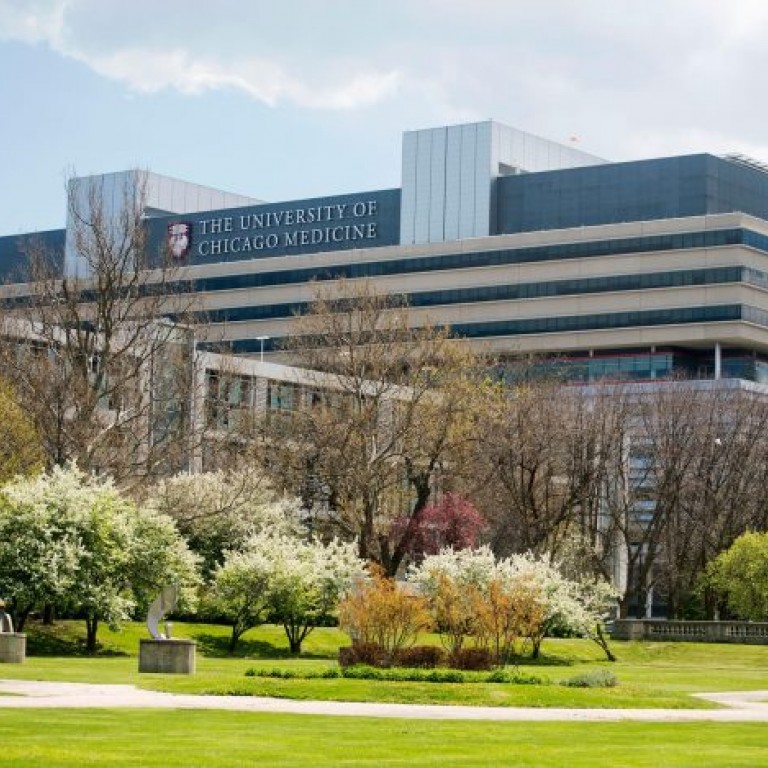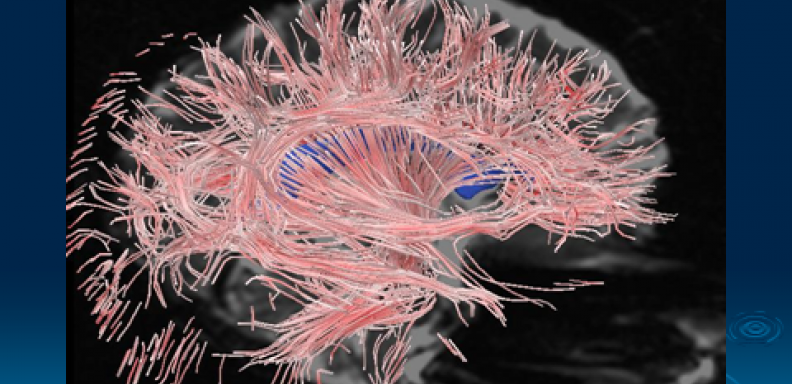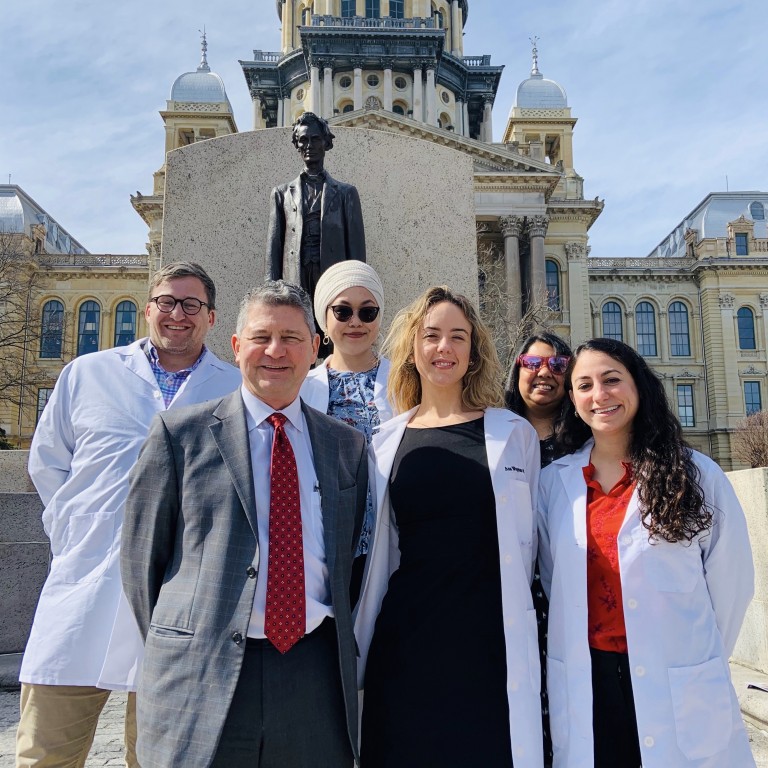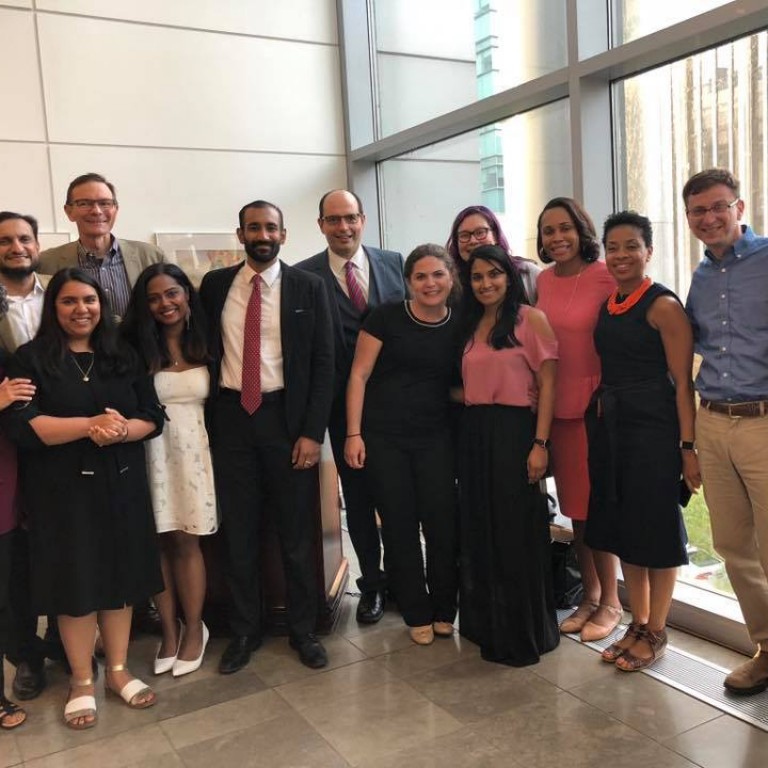As psychiatrist Royce Lee, MD, watched the COVID-19 pandemic unfold in New York City, he thought about the impact it might have on the UChicago Medicine staff once the virus traveled to the Midwest.
“I had a lot of sleepless nights,” said Lee, an expert in compassion fatigue and post-traumatic stress disorder. “Then it came to me. A resiliency program had to be in place to serve our healthcare workers and hospital staff from the very beginning.”
But how do you provide resources for coping and resilience to busy doctors, nurses and staff working long hours on a COVID unit? How can you assist the hundreds of employees working from home during the pandemic? What does peer support look like with social distancing measures in place?
Lee and his team combined lessons learned and best practices from resilience efforts after major hurricanes and mass violence events in this country. “We looked at the COVID-19 pandemic as a threat not only to the physical health of our patients but also to the mental health of our workforce,” Lee said. “Our ‘disaster recovery’ program would focus on helping the helpers.”
The team developed three resources to assist a large number of people in different contexts.
Compassion fatigue training for those caring for patients and with little time to spare.
Starting in April 2020, the program began offering brief Zoom sessions to teach clinical managers and leaders how to help the staff on COVID floors manage stress and anxiety.
The training was based on work done by psychologist J. Eric Gentry, PhD, a pioneer in the field of traumatic stress and compassion fatigue. In collaboration with Gentry, UChicago Medicine’s group adapted and condensed six hours of training content into 30-minute seminars.
“The idea was for our supervisors to bring these stress-reduction techniques directly to the units,” said Joel Jackson, Assistant Director, Inclusion & Training for UChicago Medicine’s Urban Health Initiative. “The techniques for how to relax the body and mind could be presented to a small group in just a few minutes. Trained team members could teach these skills at random moments throughout the day and encourage others to share the information.”
The compassion fatigue training took off. More than 550 individuals attended the online sessions in the first six weeks.
“The effect is gradual, but it is spreading across the medical campus, not only to the floors but also to others working at UChicago Medicine,” Jackson said. “We want everyone to know that, while dealing with COVID-19 is a struggle, they are not alone.”
A daily wellness series for individuals who are working from home and have more flexibility.
Each weekday at noon, local and nationally recognized experts present a Zoom wellness seminar designed to foster a sense of community and improve stress management.
“We wanted to open a safe and healing space for the UChicago Medicine community amid the uncertainty and isolation brought on by the pandemic,” said clinical psychologist Fabiana Araújo, PhD. “The topics vary each day, but all are based on science to increase resilience and enhance the immune system.”
Self-compassion, yoga, movement and mindfulness-based resilience practices are among the topics and activities. Dozens of team members participate in the lunchtime Zoom seminars from their homes each day.
Peer support for employees who feel extreme levels of distress.
Behavioral health specialists and chaplains staff a peer support hotline for UChicago Medicine staff every weekday. The service is anonymous, free and non-clinical.
“When things are especially difficult, this confidential hotline provides our healthcare workers rapid access to mental health resources,” Araújo said.
“Each of these three programs increases the shield of emotional support for our staff with the goal of lowering the risk of post-traumatic stress during and after the COVID-19 pandemic.”
Mental Health Care
We provide care for patients with mental and behavioral health issues in order to help them lead a productive, healthy life.
Learn more about our psychiatry and psychology services.
About Gretchen Rubin
Gretchen Rubin is a senior communications specialist at UChicago Medicine.



